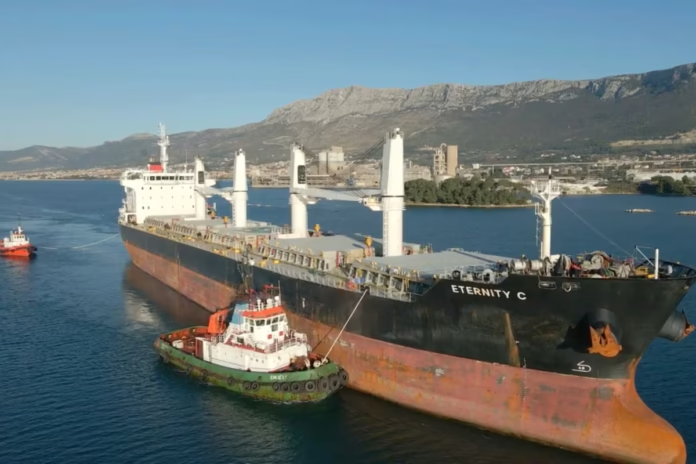Attack Details and Aftermath
On Monday night, a group of armed assailants in speedboats closed in on the Greek-operated bulk carrier Eternity C roughly 100 kilometers southwest of the port of Hodeidah, launching rocket propelled grenades at its hull while unmanned aerial vehicles dropped explosive charges from above. The assault lasted several hours, during which onboard security teams returned fire.
By dawn, the Liberian-flagged vessel had taken on fatal damage and slipped beneath the waves, marking the most lethal Houthi attack on merchant shipping this year. Three crew members perished before rescuers could reach them, and two others suffered severe injuries, including one who lost a leg in the blast.
Rescue Efforts and Casualties
Rescue teams rushed to the scene from nearby international patrols and private vessels, plucking five survivors from lifeboats and life rafts, among them twenty one Filipinos and one Russian national. The wounded were airlifted to medical facilities in Djibouti where they began treatment, while naval ships scoured the area for additional survivors amid debris fields.
As search operations continued into Wednesday, officials warned that rough seas could hamper access to potential life rafts and floating wreckage, thereby reducing hopes of finding more individuals alive.
Escalation in the Red Sea Corridor
This attack followed the sinking of another Greek vessel, the Magic Seas, just one day earlier, a strike that the Houthis publicly claimed after forcing its crew to abandon ship. Until late 2024, commercial shipping saw few serious incidents in these waters, but that calm shattered with a surge of assaults that now account for over one hundred forty separate attacks since last year.

International trade relies on this passage to move nearly one trillion dollars in goods each year, and each violent encounter raises freight costs, insurance premiums, and delivery delays for items ranging from electronics to food staples.
International Response
Global leaders wasted no time condemning the violence. The United States State Department labeled the event “the most violent attack to date,” urging restraint and respect for maritime law. The European Union’s naval mission, Operation Aspides, confirmed one crew member’s amputation and called for swift justice.
Meanwhile, the International Maritime Organization issued a statement denouncing any threats to freedom of navigation and pressed for an immediate halt to hostilities. Experts at the International Institute for Strategic Studies noted that without a robust naval presence, shipping companies might divert routes around the Cape of Good Hope, adding weeks to transit times and hundreds of millions in extra fuel costs.
Personal Analysis
And that is where the wider picture emerges: this episode signals not just a single strike but a pattern that could reshape global commerce if left unchecked. The cost of security has soared, and small operators may find themselves priced out of these lanes, leading to reduced competition and higher costs for consumers. Moreover, the diplomatic standstill between the Iran-backed rebels and regional powers shows no sign of easing, meaning vessels will sail into danger unless a new deterrent or negotiation breakthrough arrives. We cannot treat these events as isolated; instead, we must view them as warnings that critical supply lines cannot survive in an environment of escalating maritime violence without decisive action.
Sources: cbsnews.com

